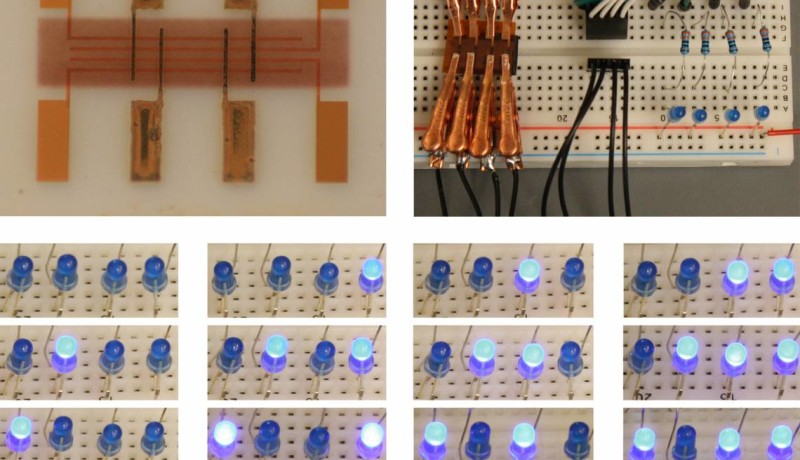Spray-on memory makes computers even more flexible
April 12, 2017
on
on

Thanks to the rise in printable electronics, digital storage devices may soon be everywhere, on groceries, pill bottles and even clothing. A new “spray-on” digital memory device created by researchers from Duke University may bring this future a step closer. The memory is applied on a (bendable) surface simply with an aerosol jet printer and nanoparticle inks at relatively low temperatures.
The device, a 4-bit memory, is the first fully-printed digital memory that would be suitable for practical use in simple electronics such as environmental sensors or RFID tags.
Where traditional memory stores data with the help of silicon transistors, the new material, made of silica-coated copper nanowires encased in a polymer matrix, encodes information in states of resistance. By applying a small voltage, it can be switched between a state of high resistance, and a state of low resistance. By dissolving the nanowires and the polymer in methanol a liquid is obtained that can be sprayed through the nozzle of a printer.
Source: Duke University
The device, a 4-bit memory, is the first fully-printed digital memory that would be suitable for practical use in simple electronics such as environmental sensors or RFID tags.
Where traditional memory stores data with the help of silicon transistors, the new material, made of silica-coated copper nanowires encased in a polymer matrix, encodes information in states of resistance. By applying a small voltage, it can be switched between a state of high resistance, and a state of low resistance. By dissolving the nanowires and the polymer in methanol a liquid is obtained that can be sprayed through the nozzle of a printer.
Source: Duke University
Read full article
Hide full article



Discussion (0 comments)